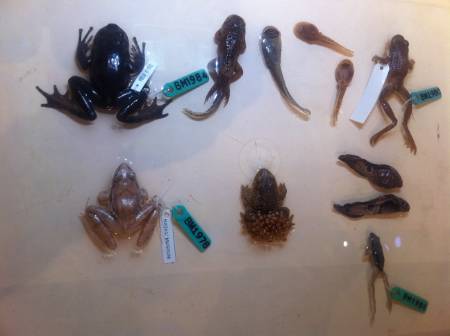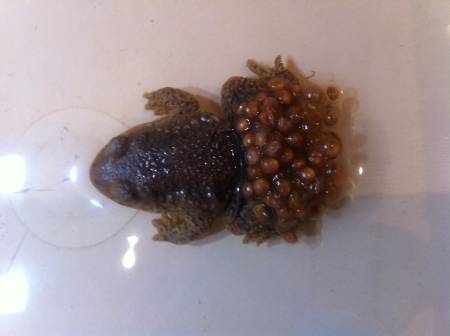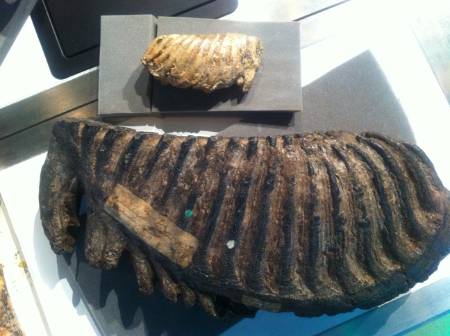It's been a busy weekend of events....first Tadpoles on Saturday and then Dwarf Elephants on Sunday. A curious combination of topics, but each equally fascinating!
Our Tadpole event was timed to tie-in with the first frog spawn starting to appear in our ponds.....which apparently it is, although warmer weather should help more appear. Apparently (according to our amphibian curator Barry Clarke) frogs have been known to produce spawn as early as December some years, but hard frosts kill the eggs and it's not until the weather becomes milder that the tadpoles are able to start developing. In fact, the warmer the weather, the quicker they devlop from tadpoles to adults.
Barry was a complete star as always and brought along lots of specimens from our zoology collections.
Note the specimen in the centre of the bottom row.....this is a Midwife Toad. They show great parental care (unlike our common frogs which lay their eggs and then leave them!) The female Midwife Toad lays her eggs and the male then wraps them around his back legs. He then carries them around with him (swimming and moving about seemingly unhindered) until the tadpoles are ready to emerge and swim off. Because of this parental care, the eggs are far safer and have a greater chance of survival than if they were left unprotected.
However, for the ultimate in parental care, go onto the BBC website and use their 'wildlife finder' to watch some incredible footage of Darwin's frog. You won't believe your eyes http://www.bbc.co.uk/nature/life/Darwin%27s_Frog#p004j5y9
As for the Dwarf Elephants today, well, they were certainly small! Tori Herridge (a researcher in our Palaeontology Department) brought along some fossils from our collections....including lots of teeth. The photo below shows the tooth of an extinct Straight-Tusked Elephant at the bottom and an extinct Dwarf Elephant tooth at the top of the photo. Quite a difference in size! The Straight-Tusked Elephant was one of the largest elephants ever to live, and could grow to as much as 4 metres tall. In comparison, Dwarf Elephants were sometimes only 1 metre tall as adults!
We'll be repeating Tori's Nature Live event later this month, at 2.30pm on Wednesday 30th March in the Attenborough Studio. As always, the event is free and lasts for 30 minutes. So come and join us if you can and discover more about these mysterious Dwarf Elephants.....





